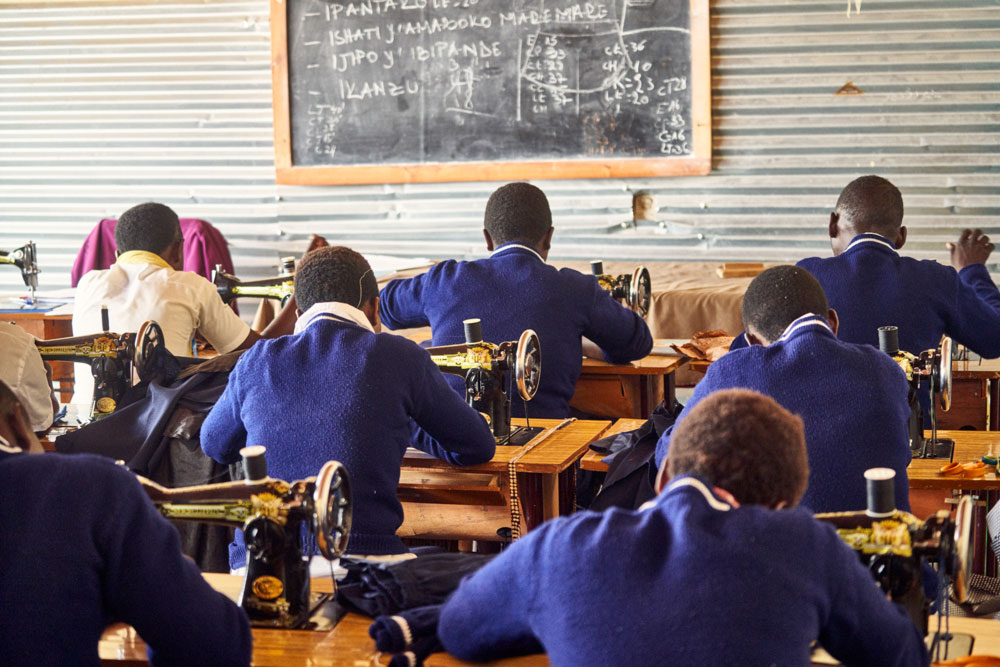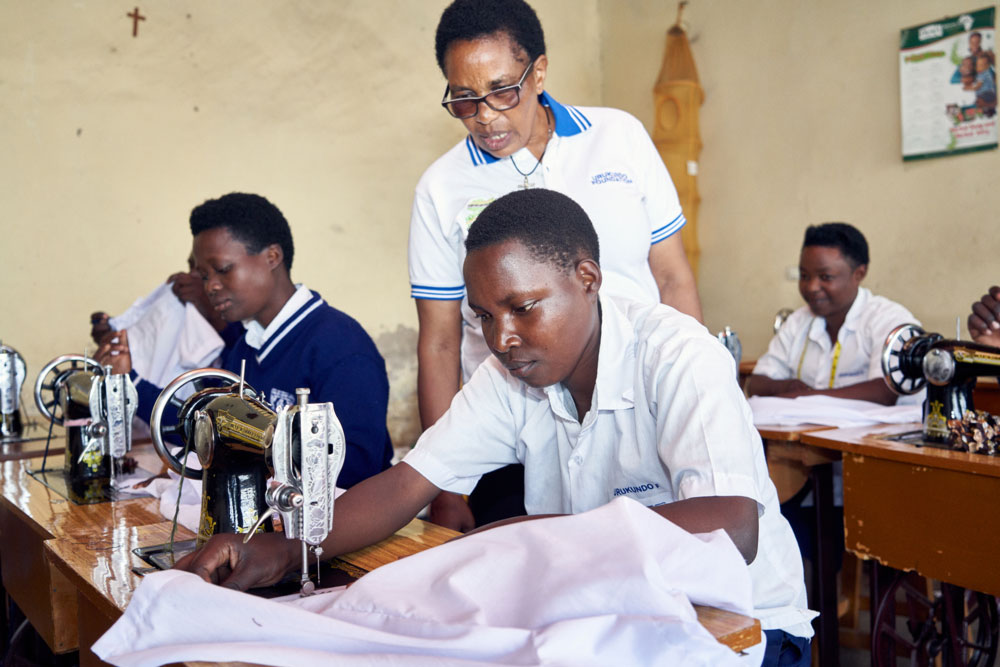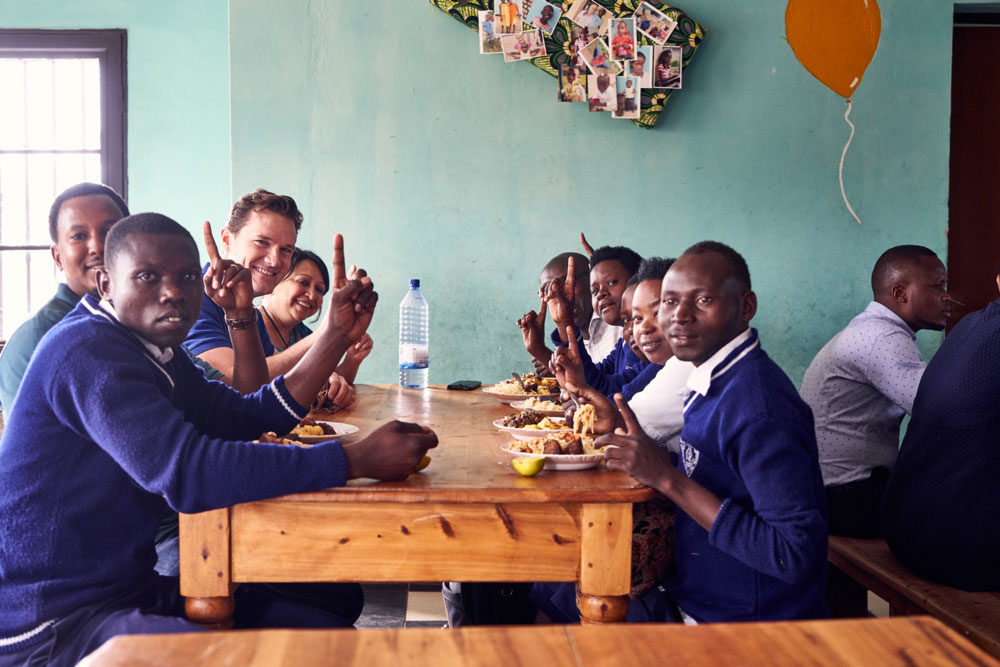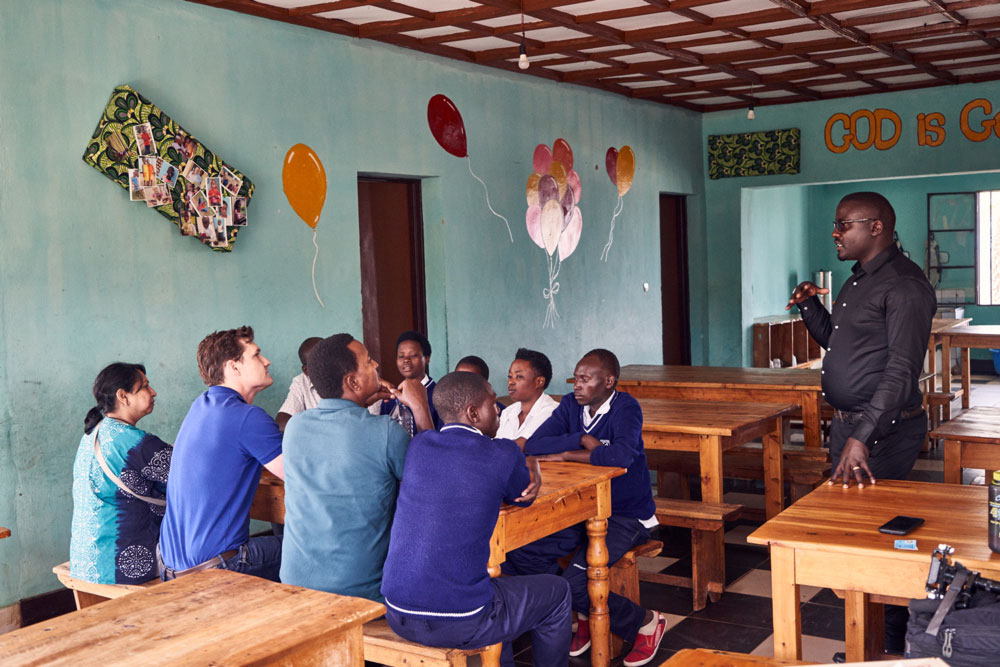Our Program Focus
- Healthcare Access
- Diabetes Education
- Economic Empowerment
HEALTHCARE ACCESS:
Marjorie’s Fund Diabetes Education CLINIC (MFDEC)
A weekly diabetes clinic is run at MFDEC, which is staffed by healthcare providers trained and supported by Marjorie’s Fund. The clinic, which serves 30 diabetes patients each week, provides patients with diabetes care and education. Health outcomes from these clinic patients are being evaluated to ascertain programmatic success. Hba1c tests and health questionnaires are assessed quarterly, and each patient is seen once monthly at the clinic. There is a small local association fee (2000 Uganda Schillings/month) to attend the clinic, but no copayment is required for medications or healthcare received. We partner with Insulin for Life-USA, which helps to supplement insulin and glucose testing supplies for our beneficiaries.
DIABETES EDUCATION:
Every 8 weeks we host a 4-hour HCP Diabetes Seminar is held at the center, attended by 55 local HCPs who treat diabetes patients on a routine basis. Relevant and requested diabetes topics are presented by international diabetes experts via pre-recorded lectures and projected to the audience. This is followed by a live question and answer session held over Skype. Evaluations are completed by each attendee following each Seminar, the results of which are used to guide the Seminar curriculum. Based on responses to post-seminar questionnaires, additional lecture series are planned for HCP to equip them with specific knowledge around T1D and provide them with guidance and tools to disseminate diabetes self-management education to their patients.
A major challenge in providing communication and education is lack of sufficient technology. MF has provided a television and two computers with necessary software and adequate memory: one to collect and measure outcomes; the other is for education. MFund is also paying for high speed Internet but service is patchy, therefore, educational seminars cannot be “live”.
Patient education takes place weekly at the medical clinic located in the MFDEC, and is administered by local HCPs. Language and cultural barriers exist which prevent direct patient education, so the focus of MFund is to educate HCPs so they may be better able to educate their patients.
ECONOMIC EMPOWERMENT:
Our work with the center includes sponsorship of vocational training opportunities, a key focus of our plan to transition young resource-strapped T1D patients, into economically and psychologically self-reliant adults. The goal of this plan is to enable T1D patients to create the means for themselves to acquire on a sustained basis, the essential supplies required to maintain good glycemic control. Our model is not to rely on donated diabetes supplies, but rather engender the economic means to purchase supplies via the local market. Our financial contributions to the purchase of these supplies are on a decreasing scale, with the goal that in 4 years our continued financial contribution toward diabetes treatment supplies will no longer be required.
One such income generating project is our “Hands Project” which trains beneficiaries on creating art, textiles and jewelry which are sold on local and international markets. We have partnered with Myabetic to help distribute jewelry created through this project, Myabetic helps to ship and sell these products with proceeds going directly back to the artists. Other economic projects include a subsidy of a plot of land that can be cultivated for cash crops to generate income for the Center as well as to educate patients on agricultural techniques to grow diabetes friendly foods. Other income is generated by rentals of business and living spaces located within MFDEC.
No programs exist in Kasese to support adults living with T1D, or to prepare adolescents with T1D on how to sustain access to diabetes treatment resources. A growing number of young adults are aging out of their respective pediatric diabetes support programs into a void where no support exists. Our goal is to transition our beneficiaries toward greater self-reliance by providing them with diabetes self-management education, vocational training, and increased access to quality care and supplies. The Marjorie’s Fund Diabetes Education Center and training program for local type 1 diabetes patients and healthcare workers is a critical step to formally root our work in Uganda. Furthermore, these efforts have the potential to save hundreds of lives.
Rwanda Initiative:
Marjorie’s Fund Rwanda Health and Tailoring Project:
Marjorie’s Fund has partnered with the Rwanda Diabetes Association (RDA) to develop a comprehensive program targeting diabetes education, direct healthcare access and vocational training. Each year-long program gives 5 young adults the opportunity to learn how to manage their diabetes more independently, link to the national healthcare program Mutuelle de Sante, and to develop sewing skills at the Urukundo Foundation which can be used toward sustainable access to medications and glucose testing supplies. Students are provided lunches, transportation to and from school and healthcare visits, and glucose testing supplies which are not currently provided under the Rwanda national healthcare program. By graduation, fellows are better equipped to control their condition and to earn money to pay for their treatment supplies. As we enroll new students in the program, we continue to support graduates through monthly diabetes educational seminars, subsidizing their medical costs, following their health outcomes with Hba1c testing and quarterly health surveys, and supporting small business start-up costs. Our model is to each quarter financially support these measure less as their income increases.
Marjories’s Fund Sponsorship provides:
10 month tuition to attend vocational school learn tailoring
Coverage for National Health Insurance (Mutuelle de Sante): copayments, yearly fee
Lunch during school day
Transport to/from school and health visits
Monthly diabetes education seminars led by the ARD and sponsored by MFund
2 glucose test strips/day for project duration
Evaluation:
Quarterly Hba1c and health/economic questionnaire
Documenting with photo and video
Marjorie’s Fund will subsidize healthcare costs at de-escalating increments for the first year after graduation







